UX Brighton 2016
UX Brighton, 4th November. A one-day conference for UX people
“We shape our tools and thereafter our tools shape us.”
– Marshal McLuhan
Has UX lost its way? It’s become a very popular term, but unfortunately it’s more often used to refer to a thing designers do, not a thing users have.
During this one day conference, we aim to eschew traditional thinking and examine better ways to model and think about the world: How we can learn from many disciplines and professions, not just design or UX; Ways of thinking and working that remove current limits to innovation; Looking at tools and techniques to help us move forward; Demonstrating how the best design needs a foundation of empirical evidence and critical thinking.
The web is always changing, moving forward, re-inventing itself, however the user’s experience remains the same.
What can we do to get better, to help us improve the UX industry and ultimately the user’s experience? We should be thinking differently, designing new tools, approaching problems in different ways. We should be re-inventing our approaches, looking to other industries for inspiration, techniques, tools, methodologies and ways to evaluate.
Please read our attendees guide.
Speakers
Inventing with jobs to be done – Jillian Wells
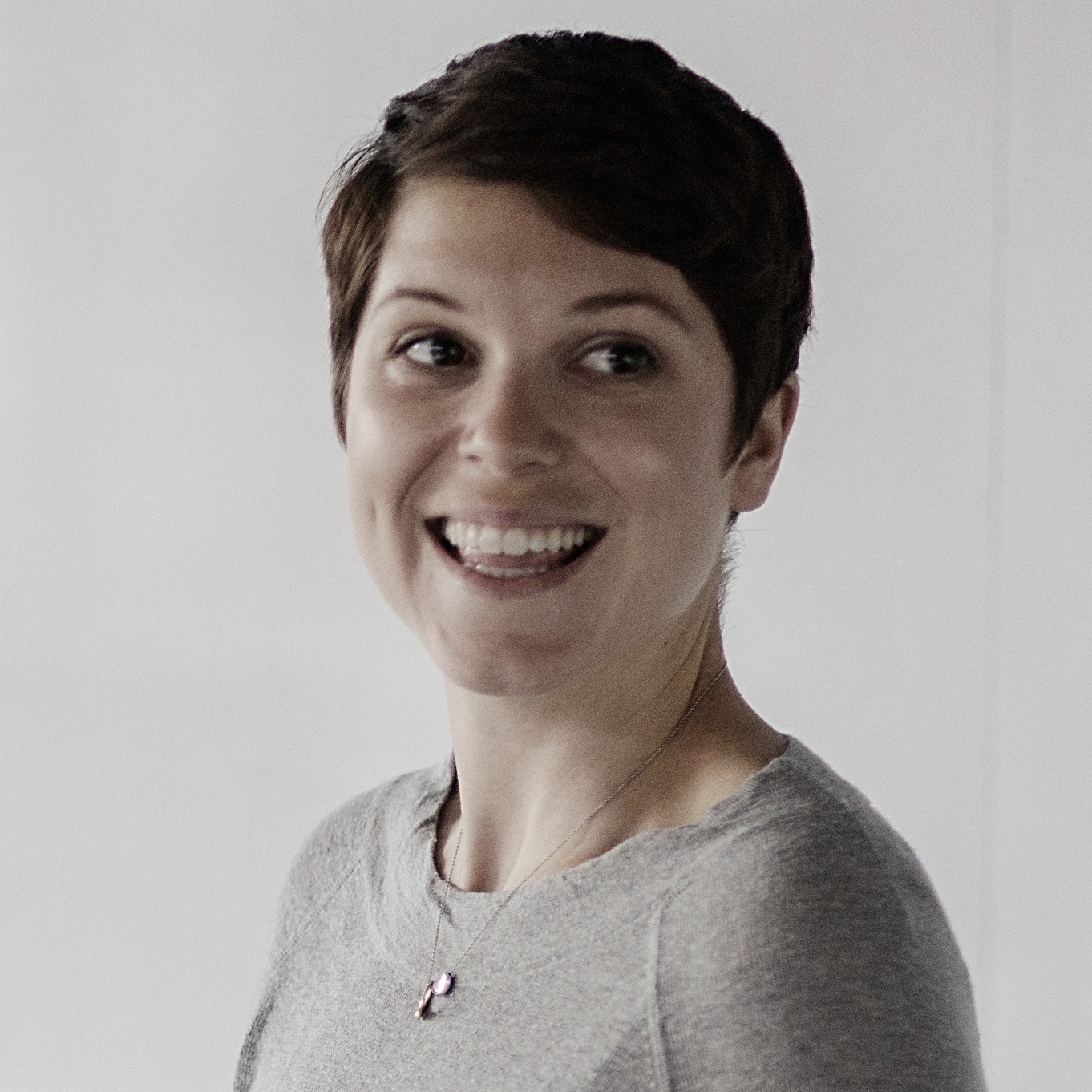
In the last 5 years, the popularity of personas as a research methodology has declined, whereas a new methodology, jobs-to-be-done, is gaining a lot of traction, and for good reason.
Jobs-to-be-done (JTBD) is an efficient, flexible research methodology that can help hardware and software teams alike create innovative product and features. This talk will detail what JTBD is, the power of using JTBD, how your software team can put the methodology to practice, and what you can do to troubleshoot when using the methodology goes awry.
Jillian is speaking at 12:25
About Jillian
Jillian is a Senior Product Researcher at Intercom with over 5 years of experience in user research, industrial design, and technology.
Jillian is a human-centred design enthusiast that believes a human-centred approach is the only one to take when creating a new product or service. Having worked in both the US and Europe, she has had the opportunity to apply this thinking in industrial design, UX design, and technology based projects, as well as teaching this mindset to industrial design students at California College of the Arts.
Git for Humans – Alice Bartlett
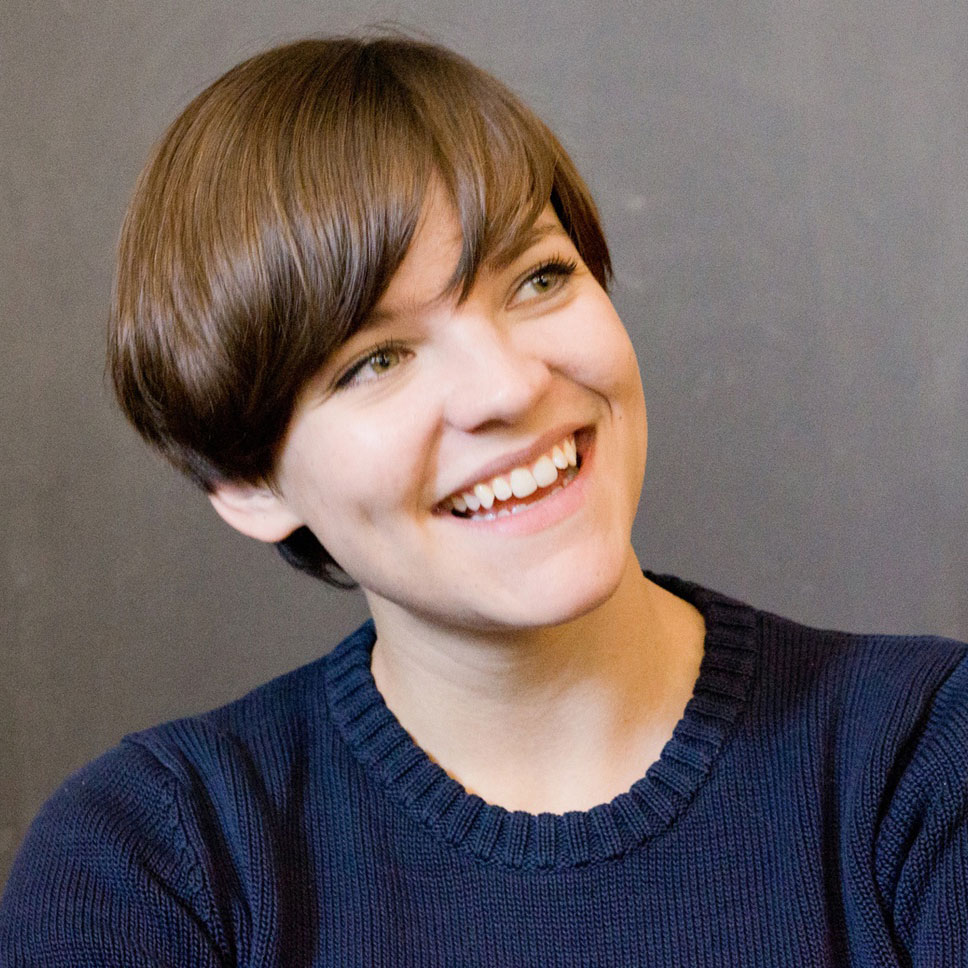
This talk will explore a tool that most developers couldn't live without. We'll look at the way it helps developers tell the story of their project, and how non-technical people can get in on the action too.
Alice is speaking at 2:20pm
About Alice
Alice is the platform lead for the Origami team at the Financial Times. She is based in London.
Origami is a collection of ui elements and web services to help developers at the FT create performant, accessible and consistent websites. Origami is used in over 50 products at the FT, from the FT's new site next.ft.com to its HTML5 web app, to its B2B and B2C marketing campaigns.
The Origami team maintains about 40 front-end modules and 5 web services. The monthly traffic for Origami's services is over 1.5 billion hits, mostly handled by Akamai.
Previously Alice has worked at the Government Digital Service, BERG, Assanka and IBM.
Alice is also the founder of lady bung empowerment franchise, tampon.club.
Alice's photo is by Timo Arnall and used with permission.
Complexity, abstraction & abduction – Professor Dave Snowden
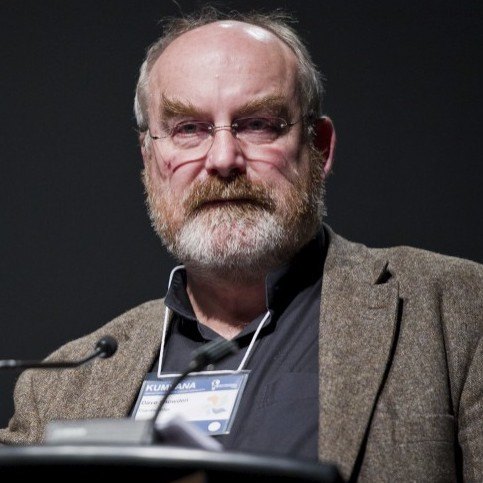
Prof. Snowden is the creator of the Cynefin Framework, used to apply complex adaptive systems theory to social systems. His initial work in counter terrorism for DARPA focused on weak signal detection and human terrain mapping. Over the last decade that work has been developed and applied to radical new approaches to understanding unarticulated user needs and understanding of how to manage inherently uncertain systems. His work applies natural science to social systems, challenging the dominant case based approach.
In this presentation he will look at the limitations and opportunities for system design that arise from the complexity theory, cognitive science and anthropology. Building on a mixture of theory and practice he will identify new methods and ways of thinking in system design and related innovative practices. Managing for serendipity, mass decision support and distributed ethnography will all be covered in the presentation.
Dave is speaking at 4:30pm
About Dave
Professor Snowden divides his time between two roles: founder Chief Scientific Officer of Cognitive Edge and the founder and Director of the Centre for Applied Complexity at Bangor University in Wales.
His work is international in nature and covers government and industry looking at complex issues relating to strategy, organisational decision making and decision making. He has pioneered a science based approach to organisations drawing on anthropology, neuroscience and complex adaptive systems theory. He is a popular and passionate keynote speaker on a range of subjects, and is well known for his pragmatic cynicism and iconoclastic style.
Evolving a modern agency – Richard Rutter
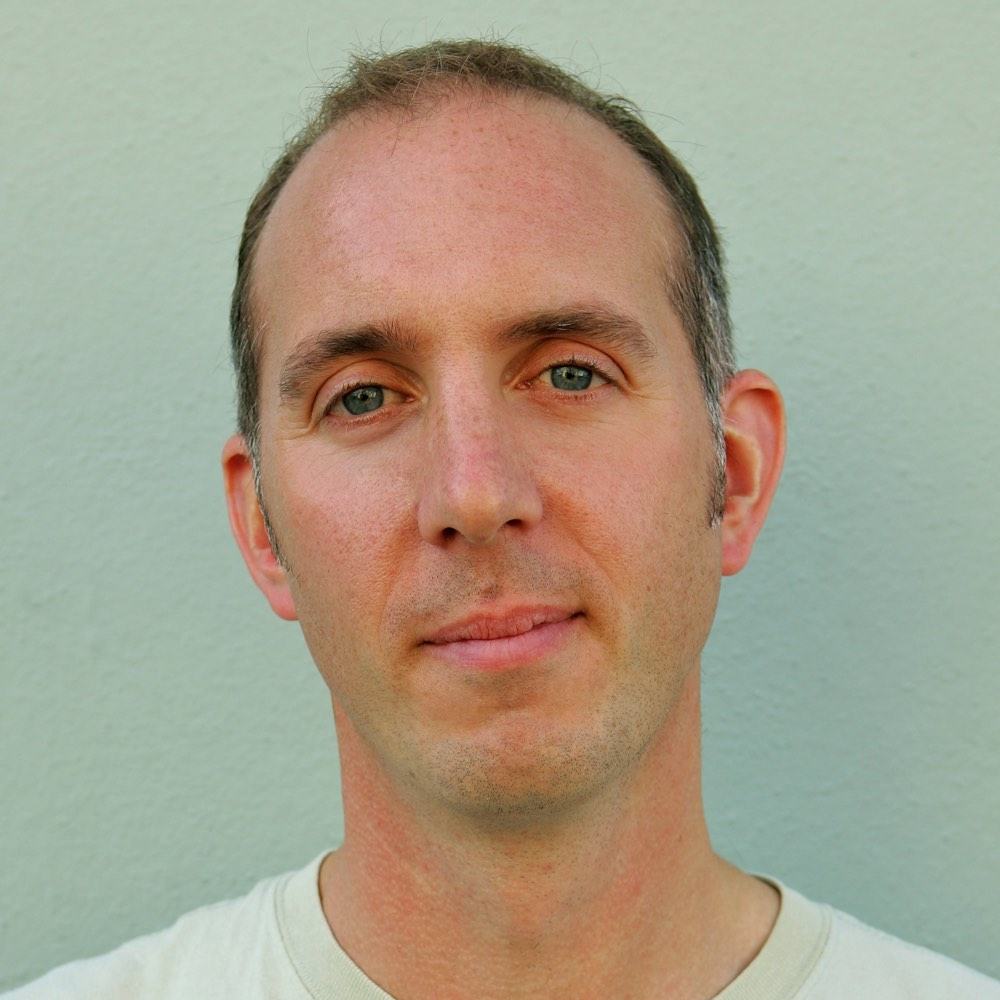
As more large organisations realise the business value of user centred design, there’s never been a better time to be a user experience agency. But with so much work on offer helping other organisations improve their practice, it can be easy to lose sight of the room for improvement in our own companies.
In this talk, Rich will focus on the kind of attitude that a user experience agency can adopt in order not to become stale. He will discuss general principles like positivity and a willingness to try new things and discuss some specific examples.
Richard is speaking at 10am
About Richard
Richard is a cofounder of digital design studio Clearleft.
He is a design consultant with a vast array of experience working for big and small clients including local councils, international fashion brands, global charities, and funky start-ups, all with a prime directive to make their customers’ lives that bit better.
Within Clearleft, Richard’s role includes shaping the culture of the agency and ensuring it - and its people - are not just adhering to best practice, but redefining it.
What to do if you hate your career – Jenni Lloyd
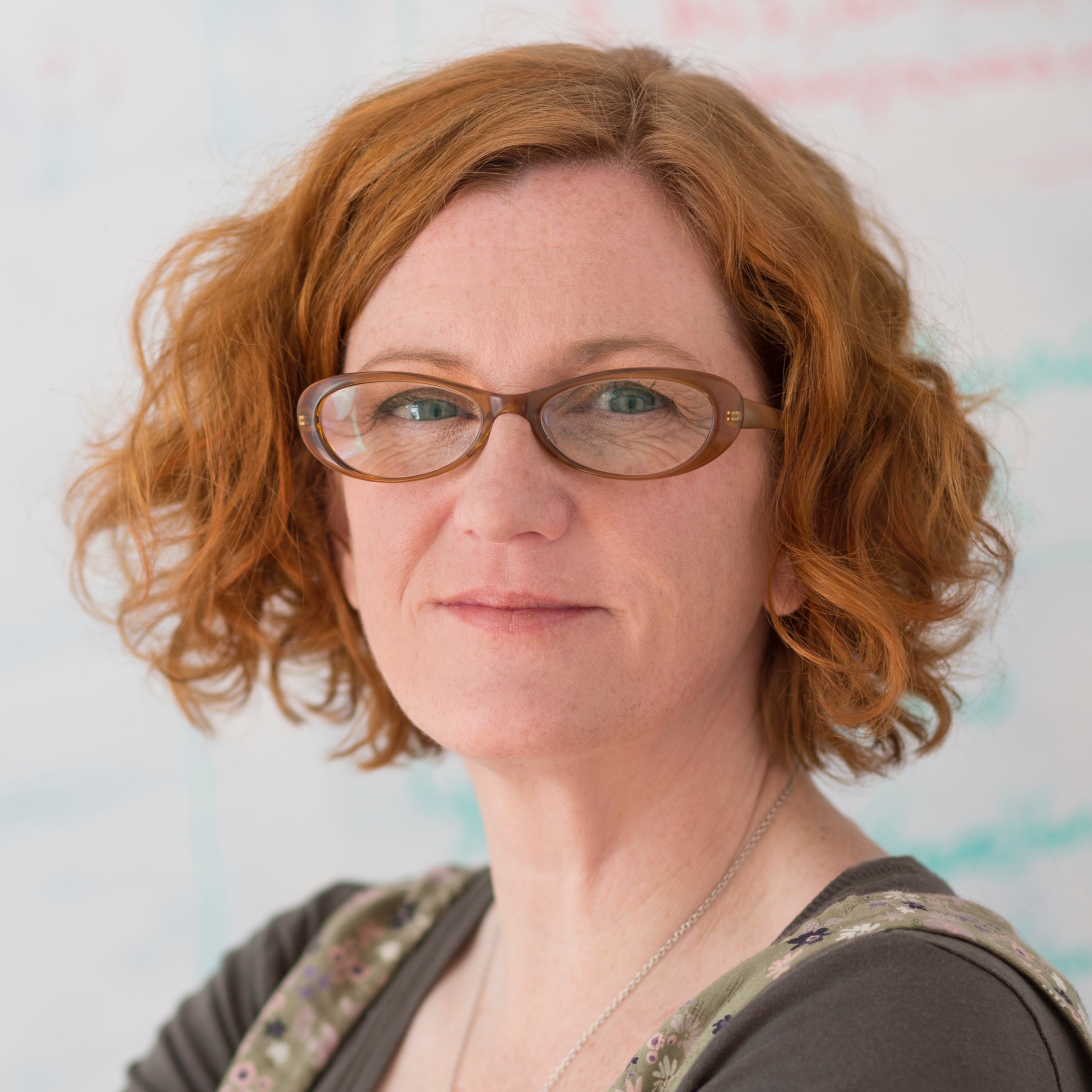
A whistle-stop exploration of the point of work, the future for UX and how to find the work most likely to lead to fulfilment.
Jenni is speaking at 10:45am
About Jenni
Jenni Lloyd specialises in participative change for connected and creative cultures. Via her company PurposeLab she works on client problems as a consultant, and also brings her own ideas to life through independent projects. Her belief is that business can and should be a force for positive change in the world - and that people connected together with a meaningful purpose can make anything happen.
A digital veteran, her background is in design - from interfaces for digital products, to experience design and finally into organisational design. The linking thread is human behaviour - understanding what people want and need and how that can be provided in a mutually beneficial way.
Previously, Jenni was a director of the consultancy NixonMcInnes, a pioneer of early social media marketing which went on to specialise in transforming how major corporations, charities and government departments behave in response to the social web.
Jenni lives in and is a fierce advocate for Brighton, the city where crazy ideas can be made real. She's proud to be a trustee of Brighton's Royal Pavilion and Museums Foundation, seeing the Pavilion as a symbol of innovation and radical ideas. As well as supporting Brighton's creative and digital business community as a board member of Wired Sussex, Jenni also sits on the University of Brighton Industrial Advisory Board. Her purpose-led projects include co-founding the annual Meaning Conference which explores meaning in business in the 21st Century; hosting a social imagineering project called Connecting Brighton and co-organising Spring Forward, an annual festival of events that support and celebrate the women working in Brighton's digital cluster.
Sketching out the future – Stef Lewandowski
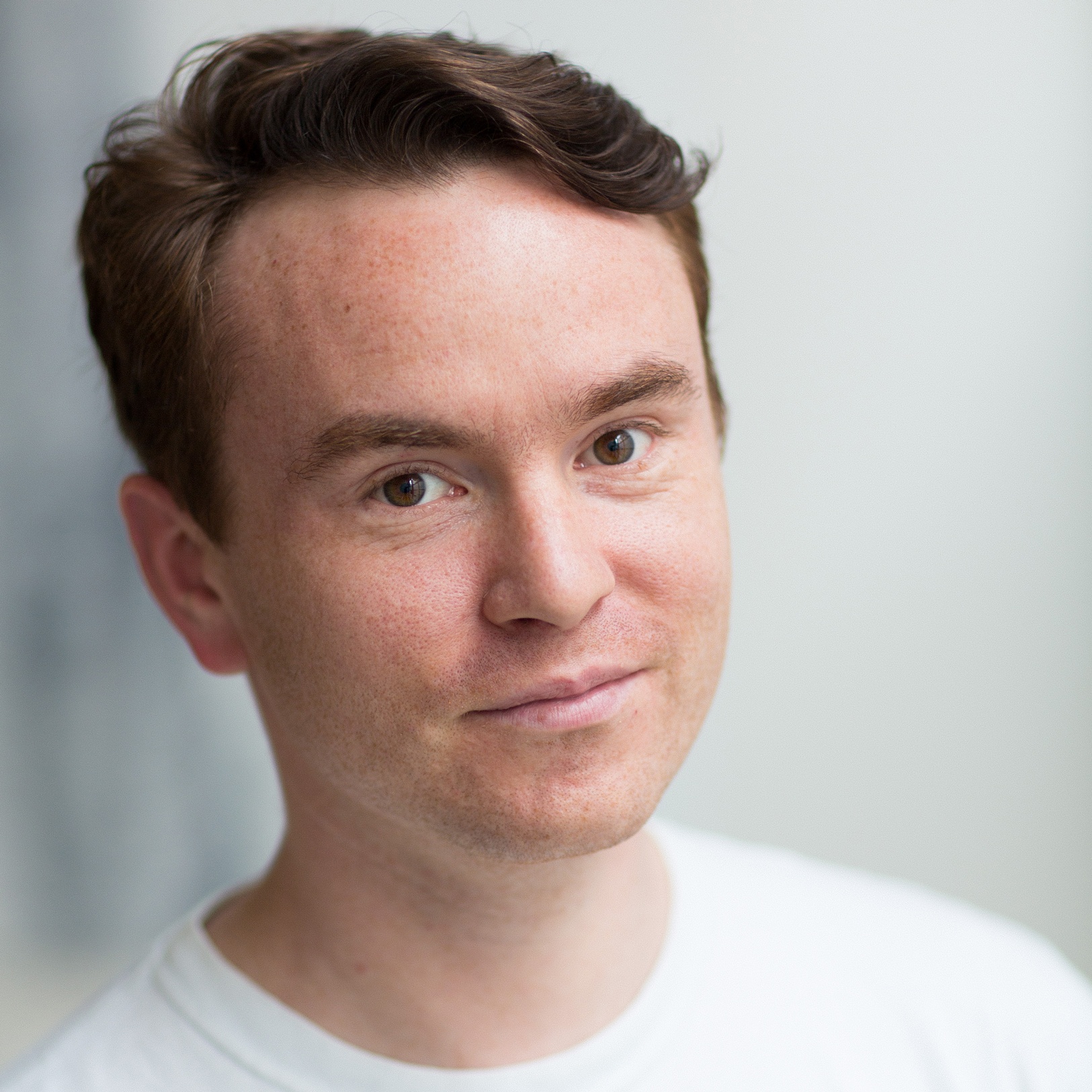
The phrase “like a startup” is at the point in the hype cycle where it's become a little passé. Agencies have been selling the idea to their clients for years. It now seems that every large company worth its salt has a startup programme of some kind, for solving their customers' problems by applying thinking from the world of tech startups and with good reason; competitors can appear out of nowhere and grow to a large scale in ever shorter time periods – so it's in a corporation's best interests to own that disruption rather than be subject to it.
At the same time, getting the tech part of a new online business off the ground isn't so hard any more. But actually finding, validating and solving a real problem that people have, and turning that solution into a business... well that's just as hard as it ever was!
But can you really apply startup methods if you're not a startup? Perhaps. New methods of looking for and solving problems have emerged, at an individual skill level, all the way up to the board room table.
Stef will talk about the corporate-backed company builders that have been appearing recently, independent startup studios, agencies that spawn products, and the individuals sketching with code on profitable side-projects. What role might our UX skills play when put in these contexts?
Stef is speaking at 3:05pm
About Stef
Stef is a cofounder of the online learning community Makelight.
He is a designer and developer who's known for his work around the emerging "startup studio" approach to company-building. He talks about a "sketching with code" methodology to creating prototypes to rapidly validate or reject potential business ideas.
Stef is a passionate advocate for people taking the bootstrapped path, and with Makelight he's on a mission to give a leg up to creative people who want to make a living from their passion.
Stef's photo is by Paul Clarke and used with permission.
Happiness Intelligence: understanding the X of UX – Nic Marks
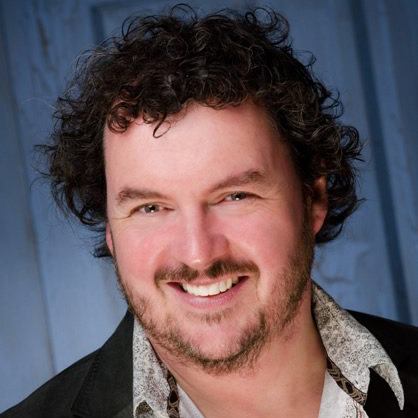
Can we design systems that facilitate profoundly better experiences for people? Systems shape us more than we realise yet we can also shape them. How can an intelligent understanding of human happiness help us design our interventions better?
Nic will draw on his experiences over the last 15 years designing metrics about people’s experience of life - their happiness and wellbeing.
Best known for his trailblazing work on the Happy Planet Index and Five Ways to Wellbeing, Nic will also share insights from his most recent work on work itself. This has now become a tech-based start-up called Happiness Works which creates measures of employees’ experience of work - MX if you like - through their product MoodMap.
Nic is speaking at 12:00am
About Nic
Nic Marks helps organizations build happier, more productive workplaces.
Described as a “Statistician with a Soul” because of his unusual combination of ‘hard’ statistical skills and ‘soft’ people skills, he draws on scientific evidence to show that everyone benefits when businesses take happiness seriously. Nic founded Happiness Works, an innovative tech-based business with offices in London and San Francisco, to be the catalyst in changing the world of work for the better.
In 2010, Nic was invited to speak at the prestigious TED global conference. His TED talk has now been watched well over a million times, and he authored one of the original three TEDbooks, entitled ‘A Happiness Manifesto’.
Twitter & Slack
Follow us on Twitter to hear about our speakers’ talks. Join our Slack group and become part of the UX Brighton community.
About our conferences
They are designed to blend the worlds of the practical, the theoretical, the commercial and the academic to create new connections and highlight the foundations of designing for User Experience. We select speakers from outside the regular design conference circuit, choosing leading UX professionals alongside those from different industries and academia.
“UX Brighton gets you out of old ways of thinking. The speakers are excellent and the networking superb”
– Simon Johnson, UX Researcher
“Loved UX Brighton the past 2 years. A place where some truly interesting issues about designing things are being discussed and an antidote to the ‘here are some things I did talks’ that are rarely as good.”
– Ash Gibson, Creative Director
Tickets
We try our very best to keep our ticket prices accessible for all, including a low cost student ticket (at just £50 +VAT). Because of this, tickets do sell quickly - don’t miss out by leaving it too late.
We can arrange payment by invoice if required, email Emmeline for further information.
Jobs
 UX Designer
UX Designer
We're looking for an incredible UX designer to help us make our new PS4 project, Dreams.
Server Developer at Media Molecule
We're looking for an experienced Server Developer to help us develop the online platform for Dreams - our next generation vision of play, create, share.